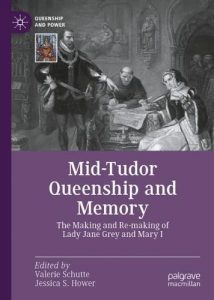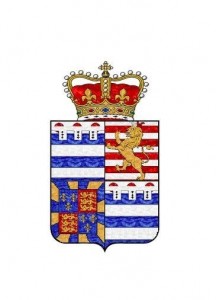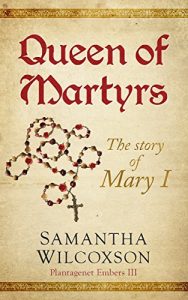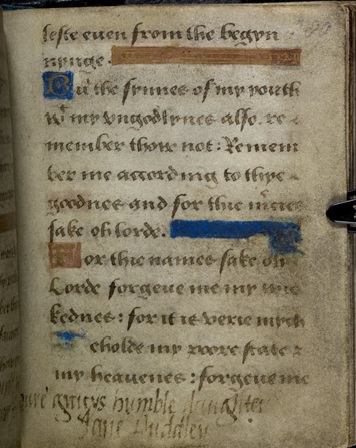Professor Eric Ives writes that, ‘Additional items from Jane’s imprisonment came to light early in Elizabeth’s reign. The first (1563) edition of the Acts and Monuments includes ‘A certain prayer of the lady Jane in the time of her trouble.’ (p.23, Ives).
He also suggests that the prayer was not written just before Jane’s execution but in late 1553.
‘The prayer she wrote in the Tower is in marked contrast’ (to the writings she prepared for circulation). Here we have evidence of Jane’s state of mind during her imprisonment…Some scholars date the prayer shortly before the final catastrophe, but against this is the phrase ‘assuredly knowing that as thou canst, so thou wilt deliver me, when it shall please thee’; Jane had not abandoned the possibility of release. On the other hand, she also wrote that without divine ‘mercy and help…so little hope of deliverance is left, that I may utterly despair of any liberty.’ Taken together, the sentiments suggest that the prayer was composed in the aftermath of her trial but before the conditions of her imprisonment were relaxed in December.’ (p. 259, Ives)
‘Oh Lord, thou God and father of my life! hear me, poor and desolate women, which flyeth unto three only, in all troubles and miseries. Thou, O Lord, art the only defender and deliverer of those that put their trust in thee, and, therefore, I, being defiled with sin, encumbered with affliction, unquieted with troubles, wrapped in cares, overwhelmed with miseries, vexed with temptations, and grievously tormented with the long imprisonment of this vile mass of clay, my sinful body, do come unto three, O merciful Saviour, craving they mercy and help, without the which so little hope of deliverance is left, that I may utterly despair of my liberty. Albeit, it is expedient, that seeing our life standeth upon trying, we should be visited some time with some adversity, whereby we might both be tried whether we be of thy flock or no; and also know thee and ourselves the better; yet thou that saidst thou wouldst not suffer us to be tempted above our power, be merciful unto me, now a miserable wretch, I beseech thee; which, with Solomon, do cry unto thee, humbly desiring thee, that I may neither be too much puffed up with prosperity, neither too much depressed with adversity; lest I, being too full, should deny thee, my God; or being too low brought, should despair and blaspheme thee, my Lord and Saviour. O merciful God, consider my misery, best known unto thee; and be thou now unto me a strong tower of defence, I humbly require thee. Suffer me not to be tempted above my power, but either be thou a deliverer unto me out of this great misery, or else give me grace patiently to bear thy heavy hand and sharp correction. It was thy right hand that delivered the people of Israel out of the hands of Pharoah, which for the space of four hundred years did oppress them, and keep them in bondage; let it therefore likewise seem good to thy fatherly goodness, to deliver me, sorrowful wretch, for whom thy son Christ shed his precious blood on the cross, out of this miserable captivity and bondage, wherein I am now. How long wilt thou be absent – for ever? Oh, Lord! hast thou forgotten to be gracious, and hast thou shut up thy loving kindness in displeasure? wilt thou be no more entreated? Is thy mercy clear gone for ever, and thy promise come utterly to an end for everyone? why dost thou make so long tarrying? shall I despair of thy mercy? Oh God! far be that from me; I am thy workmanship, created in Christ Jesus; give me grace therefore to tarry thy leisure, and patiently to bear thy works, assuredly knowing, that as thou canst, so thou wilt deliver me, when it shall please thee, nothing doubting or mistrusting thy goodness towards me; for thou knowest better what is good for me than I do; therefore do with me in all things what thou wilt, and plague me what way thou wilt. Only in the mean time, arm me, I beseech thee, with they armour, that I may stand fast, my loins being girded about with verity, having on the breast-plate of righteousness, and shod with the shoes prepared by the gospel of peace; above all things, taking to me the shield of faith, wherewith I may be able to quench all the fiery darts of the wicked; and taking the helmet of salvation, and the sword of thy spirit, which is thy most holy word; praying always, with all manner of prayer and supplication, that I may refer myself wholly to thy will, abiding thy pleasure, and comforting myself in those troubles that it shall please thee to send me; seeing such troubles be profitable for me, and seeing I am assuredly persuaded that it cannot but be well all thou doest. Hear me, O merciful Father, for his sake, whom thou wouldest should be a sacrifice for my sins; to whom with thee and the Holy Ghost, be all honour and glory. Amen!’ (p. 49-51, Nicolas)
Sources
Ives, E. (2009) Lady Jane Grey: A Tudor Mystery, Wiley-Blackwell.
Nicolas, N.H Harding, The Literary Remains of Lady Jane Grey: With a Memoir of Her Life, Triphook & Lepard.

































